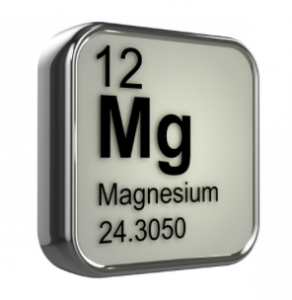How to Ensure Consistent Progression
Worried about overtraining? MI40 Top Gun Bryce Bahm is here with some simple steps you can take to byass the ...

Worried about overtraining? MI40 Top Gun Bryce Bahm is here with some simple steps you can take to byass the ...
With an overwhelming amount of research demonstrating its benefits, ‘resistant starch’ blows away many of the sexier sounding supplements that ...
Of the major neurotransmitters, acetylcholine just might be the most important from a muscle building standpoint. As a major neurotransmitter ...
For decades, medical experts and enthusiasts have been nay saying the use of fats. This approach is a result of ...
Post-training is your most insulin sensitive time of day and the time when your body can use carbs the most ...
It is important to keep in mind that these 10 key suggestions for Quad training will fly in the face ...
In this day and age, exercise and general health have become not only a trend but a necessity. Townships and ...
In the quest for the perfect physique, hormones often take center stage. Testosterone, estrogen, cortisol, insulin…they get all the glory ...
Minerals like zinc and magnesium are necessary for us to properly use energy, detoxify our bodies, and hundreds of other ...
One of the best strategies you can apply with success to a bodybuilders diet is protein rotation. In essence, eating ...
Why Should You be eating Resistant Starch? RS is a starch that when digested in the large intestine, leads to ...
Building and maintaining muscle mass while concurrently stripping body fat to reveal the separation and conditioning which defines the elite-level ...
 In their eagerness to increase strength and build muscle, most devoted iron trainees will ceaselessly pound down the
In their eagerness to increase strength and build muscle, most devoted iron trainees will ceaselessly pound down the
protein, carbs, and fats while spending a fortune on supplemental staples such as creatine and whey. However, despite their best intentions, many an aspiring bodybuilding champ will struggle to reach his or her full potential as they attempt to overcome an endless succession of progress-stalling plateaus. We all know that to consistently achieve impressive muscle-building results we must ensure all factors are optimized and accounted for: ultra hard training, a correct nutrient balance, sound sleep, good internal health, and the right mental attitude must all be considered. One critical building block that is routinely overlooked, one that, if addressed, may recommence the gaining process, is magnesium status.
Commonly considered by many bodybuilders to be just another electrolyte, magnesium is in fact a superstar mineral that is immensely beneficial, indeed critical, for all serious lifters. Magnesium, an alkaline earth metal, is the eleventh most abundant element by mass in the human body. Essential to all living cells and required for the proper functioning of hundreds of enzymes, magnesium is needed for protein synthesis, muscle contraction, glucose utilization, energy metabolism, fatty acid synthesis, and almost all hormonal processes (3, 5, 6). Magnesium is found in all human tissues but is mostly condensed in the muscles, bones, and brain.  Without enough magnesium it would be very difficult for our cells to produce energy (which may lead to chronic fatigue), the relaxation of the mind and body would be extremely difficult, and we would likely suffer muscle cramps, twitches, insomnia, and be constantly irritable and anxious (with over 3500 medical references on magnesium deficiency, this is to mention but a few symptoms stemming from inadequate magnesium intake) (9).
Without enough magnesium it would be very difficult for our cells to produce energy (which may lead to chronic fatigue), the relaxation of the mind and body would be extremely difficult, and we would likely suffer muscle cramps, twitches, insomnia, and be constantly irritable and anxious (with over 3500 medical references on magnesium deficiency, this is to mention but a few symptoms stemming from inadequate magnesium intake) (9).
Magnesium is involved in over 300 chemical reactions within the human body and, as such, is ubiquitous in bodily tissues in significant quantities; around 25 grams is the total amount of elemental magnesium found in the human body. (19) For bodybuilders and other strength athletes, magnesium depletion commonly occurs due to the large amount that is needed to power strenuous workouts and facilitate relaxation and recovery. It is estimated that less than 30% of U.S. adults achieve the recommended daily allowance for magnesium of 400mg (12), with 20% getting only half of the magnesium needed for baseline health. Although it is recommended that magnesium be obtained through a balanced diet,supplementation may be necessary to ensure optimal levels are achieved.
Magnesium: Applications
Important for bodybuilders, magnesium is required for the proper growth and maintenance of stress, blood sugar, hormones, and energy production.
Relaxation
Described as an antidote to stress and the most relaxing mineral, magnesium is used by medical professionals and performance specialists to address tightness, cramps, stiffness and irritability (3, 19). Magnesium is sometimes used intravenously to manage life-threatening emergency situations such as seizures and congestive heart failure (5, 7). Magnesium is a key component (the M) and what gives relaxing properties to the popular supplement, ZMA.
Furthermore, the relaxant effects of magnesium combined with a stimulant-free diet is thought to be one of the most effective ways to counter adrenal fatigue, a condition with symptoms ranging from erratic sleep patterns and irritability to low energy levels and sugar cravings. (16)
Muscle-building
 Magnesium is in countless ways essential for muscle repair. From promoting restful sleep to balancing blood sugar and lowering insulin levels, magnesium both directly and indirectly encourages the formation of muscle tissue and the reduction of body fat (5). More specifically, magnesium builds muscle by allowing the body to produce more Insulin-Like Growth Factor (IGF-1), lowering inflammation (10), boosting protein synthesis, supporting efficient muscular contraction, and enhancing the restoration of the energy molecule, ATP, to enhance anaerobic output and boost training intensity (11). Magnesium restores pH balance by buffering lactic acid, a waste product of anaerobic metabolism which promotes Delayed Onset Muscle Soreness (alkalization).
Magnesium is in countless ways essential for muscle repair. From promoting restful sleep to balancing blood sugar and lowering insulin levels, magnesium both directly and indirectly encourages the formation of muscle tissue and the reduction of body fat (5). More specifically, magnesium builds muscle by allowing the body to produce more Insulin-Like Growth Factor (IGF-1), lowering inflammation (10), boosting protein synthesis, supporting efficient muscular contraction, and enhancing the restoration of the energy molecule, ATP, to enhance anaerobic output and boost training intensity (11). Magnesium restores pH balance by buffering lactic acid, a waste product of anaerobic metabolism which promotes Delayed Onset Muscle Soreness (alkalization).
Blood sugar and insulin resistance
A magnesium deficiency can promote insulin resistance and abnormal sugar metabolism (1, 4). In promoting proper insulin secretion by the pancreas, magnesium encourages the healthy management of blood sugar. The more stable our blood sugar, the better we may utilize fuel; conversely, unstable blood sugar levels can lead to poor performance as well as diseases like diabetes and heart disease.
Are you magnesium depleted?
According to the National Institutes of Health, the recommended daily allowance of magnesium for adults is roughly 400mg per day. Most Americans do not hit this target. Diets comprised mostly of meat, dairy products, and flour (none of which contain any magnesium) can lead to a magnesium deficiency, as can the regular consumption of carbonated beverages (1, 17); caffeinated drinks also promote magnesium excretion via the filtering effect they have on the kidneys. Stress of any type encourages magnesium depletion (14). Whether it is extreme exercise, anger, depression, fear, guilt or another process that involves the secretion of adrenaline, a loss of magnesium will surely follow. Those who find themselves predisposed to the aforementioned risk factors may consider adopting a diet with higher magnesium content or seeking supplementation.
Magnificent magnesium
With magnesium deficiency a concern for a majority of the general population, it is no wonder stress levels are on the rise and the general health and wellbeing of many is declining (15). A major reason why people find it difficult to achieve a healthy magnesium status is because they are simply not consuming enough magnesium-rich foods.
Because it is not a common vitamin or a commonly prescribed drug, many do not give magnesium the respect it deserves. However, the fact remains that the magnesium content of foods has declined substantially over the past 100 years (8) – as such, if dietary sources are not adequate, many of us may benefit from magnesium supplementation. While 400mg of magnesium per day is recommended (including that derived from foods) (2, 12), up to 1000mg per day may be required for extremely active people and/or those who are at risk for deficiency. The most absorbable forms of magnesium are those that most readily dissolve in water. The high degree of solubility in water permits rapid and complete absorption through the gut.
To optimize magnesium’s efficacy, small divided doses are best: for example, three 200mg doses throughout the day rather than a single 600mg dose. Also remember that for proper mineral absorption, levels of the fat soluble vitamins A and D must be adequate (2).
Much more than an important electrolyte and beneficial supplement for heart health, magnesium is involved in almost all cellular processes and is critical for optimal health and wellbeing as well as optimal performance and growth. So when splashing out on the next super supplement or miraculous muscle-building formula it might be worth considering a few of the less heralded, but vastly superior products such as the king of minerals, magnesium.
References